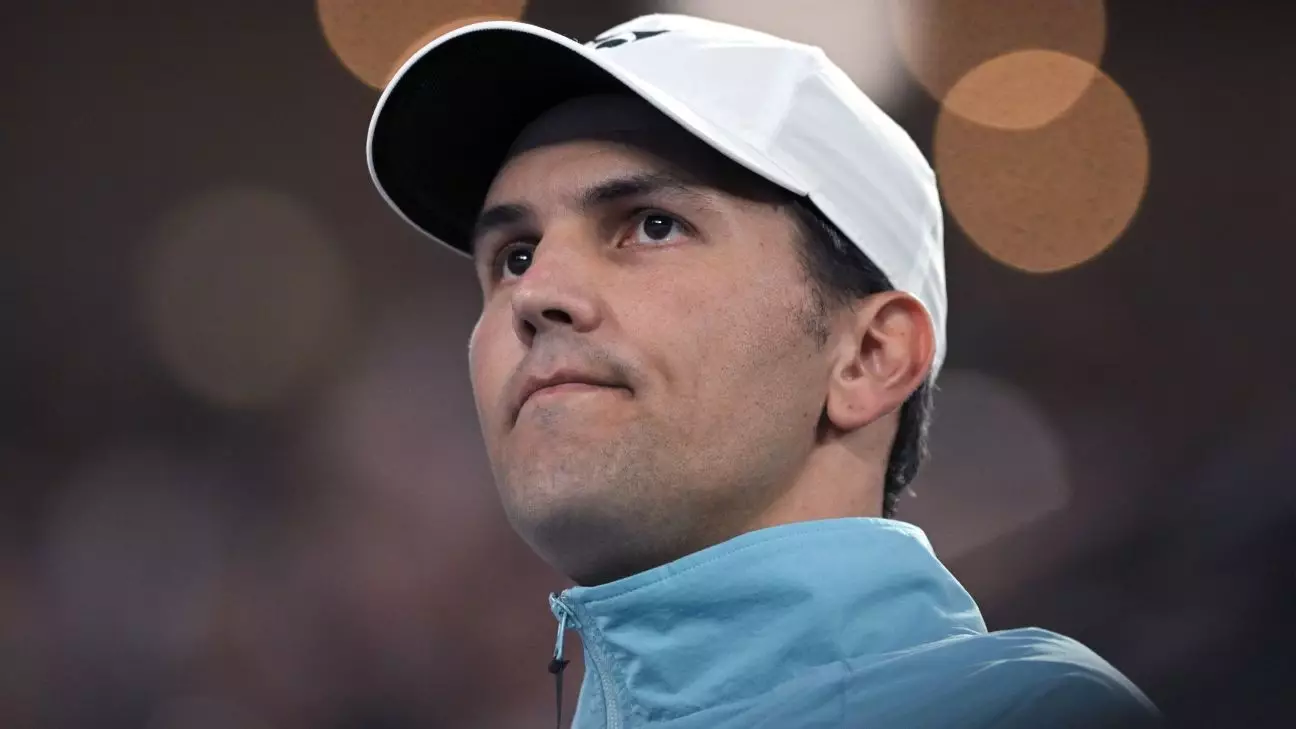The world of professional tennis has always been marked by intense competition and intricate relationships between players and their coaches. The recent suspension of Elena Rybakina’s former coach, Stefano Vukov, adds another layer to this already complex dynamic. The Women’s Tennis Association (WTA) confirmed that Vukov’s suspension remains in effect following an investigation into a suspected breach of the organization’s code of conduct. While the specifics of the alleged wrongdoing remain undisclosed, what is clear is that the situation raises significant questions regarding accountability in the realm of sports.
Elena Rybakina, who achieved her career-high ranking as the seventh-best player in the world after winning Wimbledon in 2022, finds herself amidst uncertainty as she navigates her coaching situation. The announcement of Vukov’s provisional suspension came at a time when Rybakina had already begun to sever ties with him. Notably, she had already declared that she would be working with Goran Ivanisevic—a name revered in tennis history as the 2001 Wimbledon champion.
Yet, just as the story seemed to settle into a new chapter with Ivanisevic, Rybakina hinted at a potential reinstatement of Vukov. Such a move, complicated by Vukov’s ongoing suspension, highlights the precarious balance Rybakina must maintain between her career aspirations and the reputations of those who guide her.
Public Perception and Transparency in Sports
Rybakina’s statement expressing her disagreement with the WTA’s decision is particularly noteworthy. She emphasized that Vukov “never mistreated” her during their time together, suggesting a disconnect between her personal experiences and the governing body’s actions. This contrast reflects the intricate nature of public perception in sports, where the voices of the athletes can sometimes clash with the formal proceedings of regulatory organizations.
While the WTA has committed itself to a rigorous investigation process, the lack of transparency surrounding the findings can be unsettling. Fans and fellow players alike are left questioning the criteria utilized to determine the suspension and what evidence, if any, supports such a significant measure. The balance between protecting the integrity of an investigation and providing clear information to the public represents a challenge for organizations like the WTA.
The suspension and coaching changes have not only affected Rybakina’s professional trajectory but have also spotlighted the unpredictable nature of athlete-coach dynamics. After Rybakina’s exit from the Australian Open, Ivanisevic announced that he would be stepping away from the coaching role, leaving the young champion with yet another transition in her camp. The implications of these shifts can be profound, impacting an athlete’s performance and mental state.
Ultimately, Rybakina’s story reflects many of the broader issues in competitive sports. From the challenges of navigating complex professional relationships to the intricacies surrounding regulatory oversight, athletes like Rybakina find themselves negotiating their paths through a landscape riddled with potential pitfalls. As the tennis community watches closely, the outcome of this situation could have lasting repercussions for Rybakina’s career and the WTA’s reputation in handling such sensitive matters.


Napsat komentář